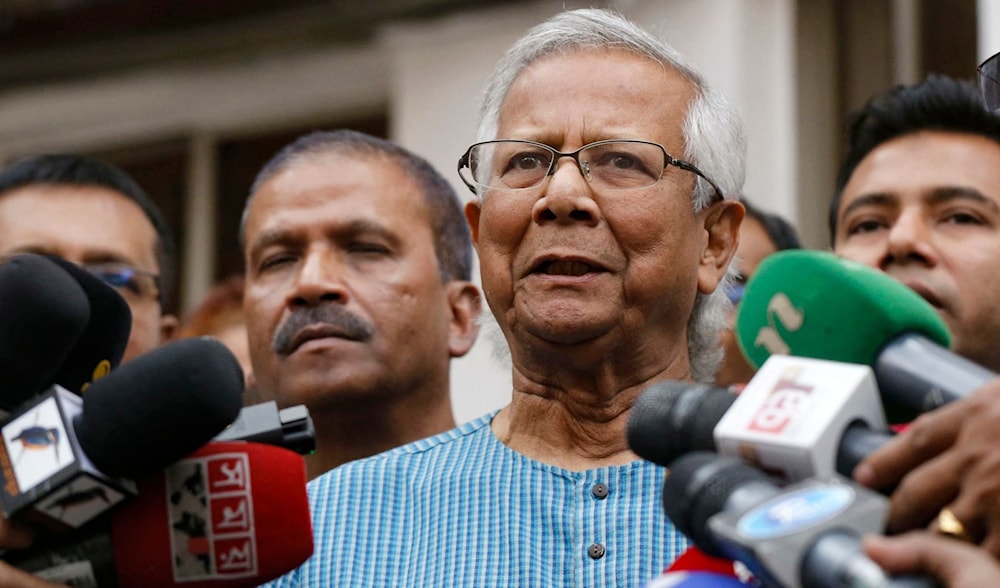Muhammad Yunus set to lead Bangladesh's interim government
After five weeks of violent demonstrations, Bangladesh expresses hope for a new political transition with the establishment of a new interim government.
-

Bangladeshi Nobel laureate Muhammad Yunus addresses the media in Dhaka, Bangladesh, March 3, 2024. (AFP)
Bangladesh's Nobel Prize winner Muhammad Yunus is set to establish a new interim government following the resignation of Prime Minister Sheikh Hasina, who fled to India earlier this week. The newly-appointed leader urged citizens to calm down and view this new political transition as an opportunity to build a better nation.
"I fervently appeal to everybody to stay calm. Please refrain from all kinds of violence," Yunus said in a statement, a day before returning to Bangladesh from Europe, asserting citizens should "Be calm and get ready to build the country. If we take the path of violence everything will be destroyed."
"This is our beautiful country with lots of exciting possibilities," the presidency said following the appointment of Yunus, expressing optimism about making the nation "wonderful" for current and future generations.
Yunus commended the student demonstrators for their five-week anti-quota protests that became violent due to Prime Minister Sheikh Hasina's violent police crackdown, stating "I congratulate the brave students who took the lead in making our Second Victory Day possible, and to the people for giving your total support to them."
The Nobel laureate informed the nation that he wishes to hold elections within the next few months.
Meet the leader of the interim government
Muhammad Yunus is a social entrepreneur known as the "banker to the poor" for his mission to combat poverty and famine in Bangladesh with his microfinancing work through his non-profit company, Grameen Telecom, which he founded in 1983.
“I found it difficult to teach elegant theories of economics in the university classroom, in the backdrop of a terrible famine in Bangladesh. Suddenly, I felt the emptiness of those theories in the face of crushing hunger and poverty,” Yunus said in his 2006 Nobel acceptance speech.
“I wanted to do something immediate to help people around me, even if it was just one human being, to get through another day with a little more ease."
Back in January, Yunus, along with three other people, was convicted of six months imprisonment for violating labor laws at Grameen Telecom for failing to legally create a workers' welfare fund. In June, Yunus told The Guardian he faced 20 years of pressure from the Bangladeshi government for his work that aimed to enhance the lives of millions of impoverished people, especially women.
Bangladesh president dissolves parliament after PM resignation
Bangladeshi President Mohammed Shahabuddin dissolved parliament on Tuesday after the resignation of Prime Minister Hasina, who fled to a safe house outside New Delhi after fleeing the country following violent crackdowns during the student-led anti-quota protests, enabling the formation of an interim government.
Protesters stressed demonstrations would continue if the parliament was not dissolved. The decision to dissolve parliament was taken after consultations with the heads of the defense forces, political party leaders, and civil representatives, the presidential statement said.
The ruling Awami League's opposition, Hasina's nemesis, and chairperson of the Bangladesh Nationalist Party (BNP), Begum Khaleda Zia will be cleared of "all charges legally and come out soon" from house arrest after her conviction in 2018 in a graft case, a move that was "unanimously decided," Shahabuddin stated.
Hasina's resignation and departure from the country on Monday ended her 20-year rule, a position she inherited from her state founder father, Mujibur Rahman, who was assassinated in 1975.

 4 Min Read
4 Min Read








